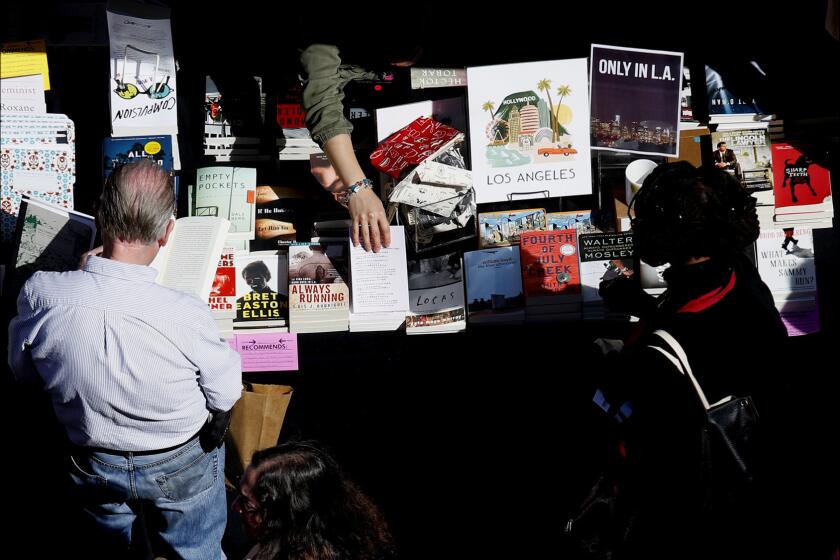Marilynne Robinson, beloved novelist and Festival of Books guest, talks about God and ‘Jack’

- Share via
The title character in Marilynne Robinson’s latest novel, “Jack,” who falls in love with a Black woman at a dangerous time in America, has been ever-present in her “Gilead” novels, but rarely seen or explored. At a moment of reckoning with racial injustice, his eventual emergence as a main character seems like a foregone conclusion. But for Robinson, a featured guest at the Los Angeles Times Festival of Books and the winner of prizes that include the National Book Award and two Pulitzers, it was hardly inevitable.
“I didn’t even intend to write a second Gilead book,” Robinson said during a Zoom conversation preceding her Festival talk with journalist and novelist Hector Tóbar. (This is her fourth in the series, after “Gilead,” “Home” and “Lila.”) “I was very interested in Jack. Part of what makes a character interesting I think to a writer is inaccessibility of a kind. But after I had him in mind for a while, I did feel as though I could understand his speech, his language, his presence well enough to give him his own book.”
The 25th Los Angeles Times Festival of Books, Stories & Ideas kicks off this weekend. Due to the pandemic, this year’s series of free events will be virtual. Here’s everything you need to know about how to tune in.
The series, which is set in the fictional town of Gilead, Iowa, in the 1950s and centers on two ministers, one Congregationalist and one Presbyterian, explores the themes of American idealism in light of (and in contrast to) John Calvin’s theory of predestination.
“Aside from characters living in my head, so do certain figures whose thinking has been important to me,” Robinson said. “I don’t intend so much to use Calvin as that I am so used to thinking in his terms that he emerges spontaneously.”
Robinson’s rich interpretations of religion as it interacts with American society have brought the author to the attention of not only the former Archbishop of Canterbury, Rowan Williams, but also former President Obama. Both cite her as a major influence, and the president interviewed her at length for the New York Review of Books.
Robinson’s dazzling Gilead novels, from “Home” to “Lila,” have grappled with the history of American ideals. In “Jack,” she writes about an interracial couple.
In these days of social distancing, a novel that “prioritizes human solitude” opens up deeper existential discussions. So you might as well ask Robinson, over Zoom, about how faith operates in modern society. She talks about the strange power of religion — the way it’s alternately regarded as deeply private and politically polarizing, prone to be misunderstood by the loudest believers and sheepishly hidden by the most thoughtful.
“I think often that we’re so zealous for interpretation that we’re not particular about the quality of the evidence that we’re proceeding from,” said Robinson.
“It was strange ... When I published ‘Gilead,’ and many times subsequently, people have [asked] me — typically people identified as Christian and religious — if I was afraid to write things that were explicitly religious. And that puzzled me so much. Why should I be afraid? The idea that there’s somebody out there who’s going to shake his finger at you because you’ve gotten a little theological from time to time is a phantom. That’s an invented idea. No critic has ever taken me to task for that. Ever. And I’ve been criticized in many places.”
Robinson was in conversation at the Festival of Books, below, with Héctor Tobar, also a Pulitzer Prize-winning novelist and journalist and author of the new book “The Last Great Road Bum.”

More to Read
Sign up for our Book Club newsletter
Get the latest news, events and more from the Los Angeles Times Book Club, and help us get L.A. reading and talking.
You may occasionally receive promotional content from the Los Angeles Times.












